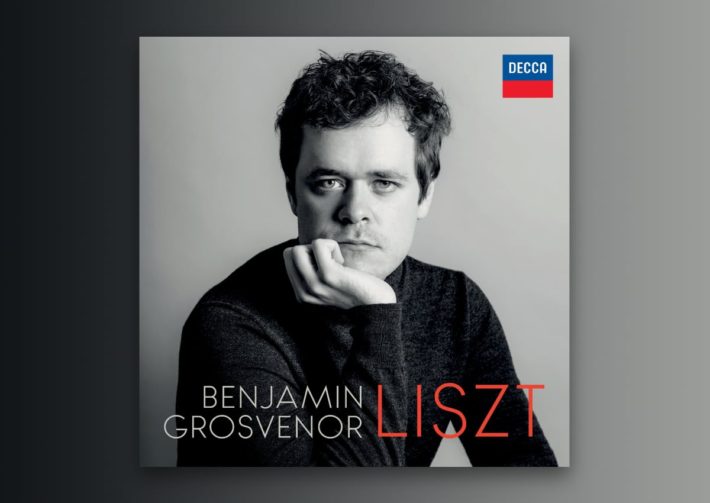For anyone following the career of Benjamin Grosvenor, one should notice a pattern arising. From his debut disc through his other solo releases — ‘Dances’ and ‘Homages’, an album dedicated a composer close to his heart comes as no surprise. Having had a long-standing admiration of Liszt, this generous 83 minute release from Decca which includes the sonata coupled with shorter items is certainly eagerly awaited and a compelling listen from beginning to end.
The sonata is first on Grosvenor’s program. Diligently observed, Grosvenor is very respectful of Liszt’s tempo indications. The phrasing is sincere and stylistic, and the articulation is very clear. The balance of his hands is not as refined as Martha Argerich and Krystian Zimmerman, whose fingers bring greater definition to the melodic ideas. Grosvenor’s more even balance allows for starker, but less colorful, textural clarity and contrast.
In the sonata’s first movement Grosvenor brims with youthful excitement and vivacity, whereas Zimmerman knows how to hold back a little more in reserve. The more Chopinesque moments have lyricism and refinement. In the ‘andante sostenuto’, Grosvenor employs some expressive and effective rubato, adding substance and weight to his interpretation. The section marked ‘Allegro energico’ has an almost mechanical-like precision, but towards the end Grosvenor appears to push himself to the absolute limits of his sound and endurance. The final ‘andante sostenuto’, though, brings a beauty of tone, especially in the final chords.
Related Classical Music Reviews
- Review: “The Wanderer” – Seong Jin-Cho Plays Schubert, Berg and Liszt
- Review: Alexandre Kantorow Plays Brahms, Bartók, Liszt
- Review: “In Concert” – Till Fellner Plays Liszt, Beethoven (ECM)
The program concludes with a selection of shorter pieces. The ‘Tre sonetti’ are the finest pieces in this album; here Grosvenor plays with more freedom and gets to the heart of these pieces, especially in the third of the set. Here he is able to become the more convincing storyteller, with an awareness of the music’s imaginary, shaping many of the phrases with sheer beauty.
Grosvenor executes ‘Réminiscences de Norma’ with exceptional technical prowess. However, the drama of the opera and the orchestral-like colors that are needed to make this truly exceptional are lacking ever-so-slightly, more so when the left-hand takes the melody line. That being said, the sense of line and the technical execution of double octaves is nothing short of impressive. Finally, ‘Ave Maria’ is aptly placed and delicately executed, providing a moment of reflection after such an intense recital.
As heard in his previous releases, Grosvenor’s tonal pallet is complex and diverse. He is able to command the sonorous gravitas of the bass, the twinkling delicacy of the high treble and the richness of the mid-range. Yet in this release he occasionally lacks the needed cantabile sounds in the more languorous melodies and phrases. While this is all very commendable, in the more extreme moments of the sonata and ‘Réminiscences de Norma’, the tones at the extremes of the piano are pushed a little too hard, distracting the listener in the more virtuosic moments. This is not helped by a rather close and airless recording engineering, that somehow diminishes the Queen Elizabeth Hall’s acoustics.
Grosvenor’s enthusiasm for Liszt is obvious from beginning to end. The program is well thought-out and shows the pianist’s dedication to the composer, but lacks the originality of his previous albums. He plays throughout with insight into the interpretive demands, but uneven execution and momentary losses prevent Grosvenor from being the ‘go to’ choice in the sonata. Grosvenor fans will enjoy this album without a doubt, others will be less convinced.

Liszt – Piano Sonata in B Minor, Berceuse, Tre Sonetti di Petrarca, Réminiscences de Norma, Ave Maria
Benjamin Grosvenor – Piano
Decca, CD 4851450
Read more classical music reviews or visit The Classic Review Amazon store











